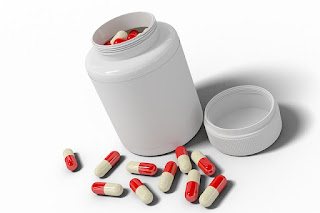What are NSAIDs?
Nonsteroidal anti-inflammatory drugs (NSAIDs) are a commonly used class of medications that are used to treat pain, fever, and inflammation. However, while NSAIDs are generally safe when used as directed, they can sometimes cause side effects, including changes in blood pressure. In this article, we will explore the relationship between NSAIDs and blood pressure.
Some examples of NSAIDs include:
- Aspirin (brand names include Bayer, Bufferin, and Ecotrin)
- Ibuprofen (brand names include Advil and Motrin)
- Naproxen (brand names include Aleve and Naprosyn)
- Diclofenac (brand names include Voltaren and Cataflam)
- Celecoxib (brand name Celebrex)
Do NSAIDs Raise Blood Pressure?
NSAIDs can cause an increase in blood pressure, particularly in individuals who already have high blood pressure or are at risk for developing hypertension. This is because NSAIDs can interfere with the production of prostaglandins, which are chemicals that help regulate blood pressure. When prostaglandin production is reduced, blood vessels can narrow, leading to an increase in blood pressure.
Prostaglandins are hormone-like substances that are produced naturally in the body and have a wide range of functions, including regulating blood pressure. Prostaglandins are produced by cells throughout the body and act as messengers, transmitting signals between cells.
NSAIDs work by blocking the production of prostaglandins by inhibiting the activity of an enzyme called cyclooxygenase (COX). COX is an enzyme that is involved in the production of prostaglandins, so when it is inhibited, less prostaglandins are produced.
One of the roles of prostaglandins in the body is to help regulate blood pressure. Prostaglandins can help to widen blood vessels, making it easier for blood to flow through them, which can help to reduce blood pressure. They can also help to regulate the constriction and dilation of blood vessels.
When NSAIDs inhibit the production of prostaglandins, it can lead to a constriction of blood vessels, which can increase blood pressure. This effect is more pronounced in individuals who already have high blood pressure or are at risk of developing hypertension.
Additionally, prostaglandins can also help to protect the lining of the stomach and intestines from damage caused by stomach acid. When prostaglandin production is reduced by NSAIDs, it can increase the risk of gastrointestinal side effects, including stomach ulcers and bleeding.
The degree to which NSAIDs raise blood pressure can vary depending on the individual and the dose of medication. In most cases, the increase in blood pressure is mild and temporary, but for some individuals, it can be more significant and lead to complications.
Several studies have looked at the link between NSAIDs and blood pressure. One study published in the British Journal of Clinical Pharmacology found that individuals taking NSAIDs had a higher risk of developing hypertension than those not taking the medication. The study also found that the risk was higher in individuals taking higher doses of NSAIDs and those taking the medication for longer periods of time.
Another study published in the Journal of Clinical Hypertension found that NSAIDs increased blood pressure in individuals with and without hypertension. The study found that the effect was more pronounced in individuals with pre-existing hypertension.
Individuals with hypertension or a history of cardiovascular disease should talk to their healthcare provider before taking NSAIDs. They may need to monitor their blood pressure more closely or avoid NSAIDs altogether. In some cases, alternative pain management options may be recommended.

